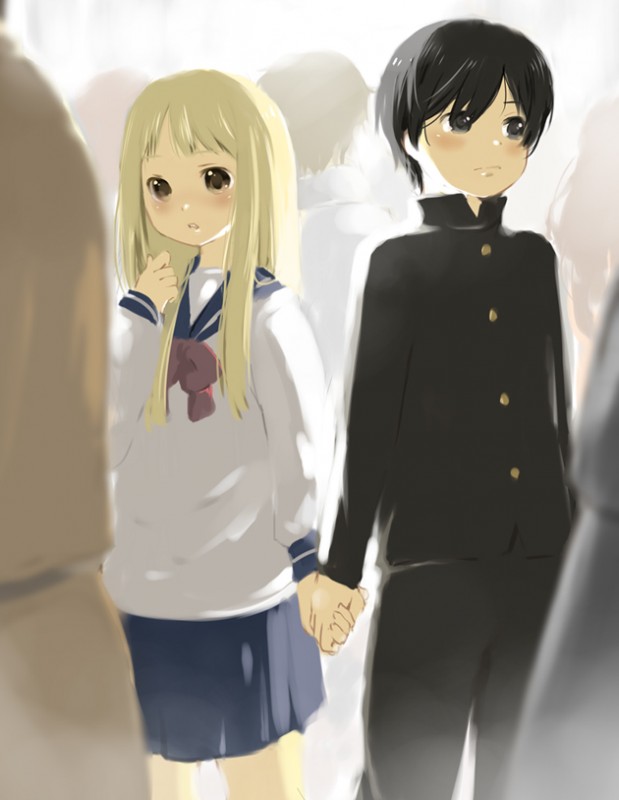Pop quiz: without using Google or Wikipedia, what does the ‘T’ in ‘LGBT’ represent?
If you guessed ‘trap,’ you aren’t completely wrong, but you aren’t right, either. That ‘T’ actually stands for ‘transgender,’ which is arguably the least represented and least understood culture associated with alternative sexuality and gender roles. Cross-dressing and gender swapping in popular media, especially anime and manga, is generally played for laughs or used as a plot device which is given little real focus. Hourou Musuko, however, is a manga which dives right into the issues and portrays them much differently than what is typically seen. The anime adaptation begins airing in January 2011, and the English version of the manga goes on sale in March. Find out why you should care after the break!
On the first day of his fifth year in elementary school, Nitori Shuuichi is mistaken for his older sister by one of the teachers due to his feminine face. He makes friends with the tomboyish girl sitting next to him, Takatsuki Yoshino, and soon she invites him over to her house to do homework. After inspecting the cookies Shuuichi baked himself and brought with him, she catches him staring at a dress hanging on her wall. Yoshino gives it to him after assuring him that it would look good on him, lamenting that her parents persist in giving her feminine clothes despite her distaste for them. He passes the dress on to his older sister rather than keeping it for himself, but can’t seem to take his eyes off of it as it hangs in their room. One day while home alone, he predictably gives in and tries it on, even answering the door and being instantly outed when it turns out to be one of his classmates.
Shuuichi begins like many who experienced gender dysphoria starting at a young age did: innocently, curiously, and maybe a little oblivious to what exactly he was doing. Because an interest in such things generally disappears within a couple of years and can often be regarded as a phase in normal child development, people are ambivalent and even indulgent in his behavior at first despite their initial surprise. After Takatsuki tells Shuuichi about her going out in public in her brother’s old middle school uniform, she convinces him to join her on some absolutely adorable platonic “reverse dates” as an outlet for their feelings.
However, these episodes of acting out are often accompanied by feelings of guilt, fear, uncertainty and apprehension. As others around him gradually come to suspect and learn more about what Shuuichi and Takatsuki do, the psychological and social implications begin to take center stage. The story really begins to shine with the way it handles these issues head on, even at the risk of bogging down the literary flow to make sure proper attention is devoted to a particular point. Hourou Musuko is at its best when it’s at its slowest; the pondering, careful and often angsty storytelling along with meticulous attention to detail brings the characters and their situations to life in a way that often made me question if the author was writing from experience rather than research. It presents and addresses issues frankly and directly; sometimes without providing answers when none exist.
Despite the characters often behaving in a manner which suggests they are much older than they are, Hourou Musuko paints a wonderfully detailed and insightful picture of the lives of a misunderstood and misrepresented group of people. Rather than being a gag or a plot device, gender issues and identity are at the core of this story and its characters. I grew up basically believing that transsexuals were either just another kind of homosexual or just simply really bold perverts. This manga, along with some thorough personal research, has really helped to broaden my understanding of those whose exterior does not match who they feel they are inside. I hope you can also come away from this story with a new understanding of people who attempt to reconcile a conflict of one of the most fundamental aspects which make up our sense of self.


